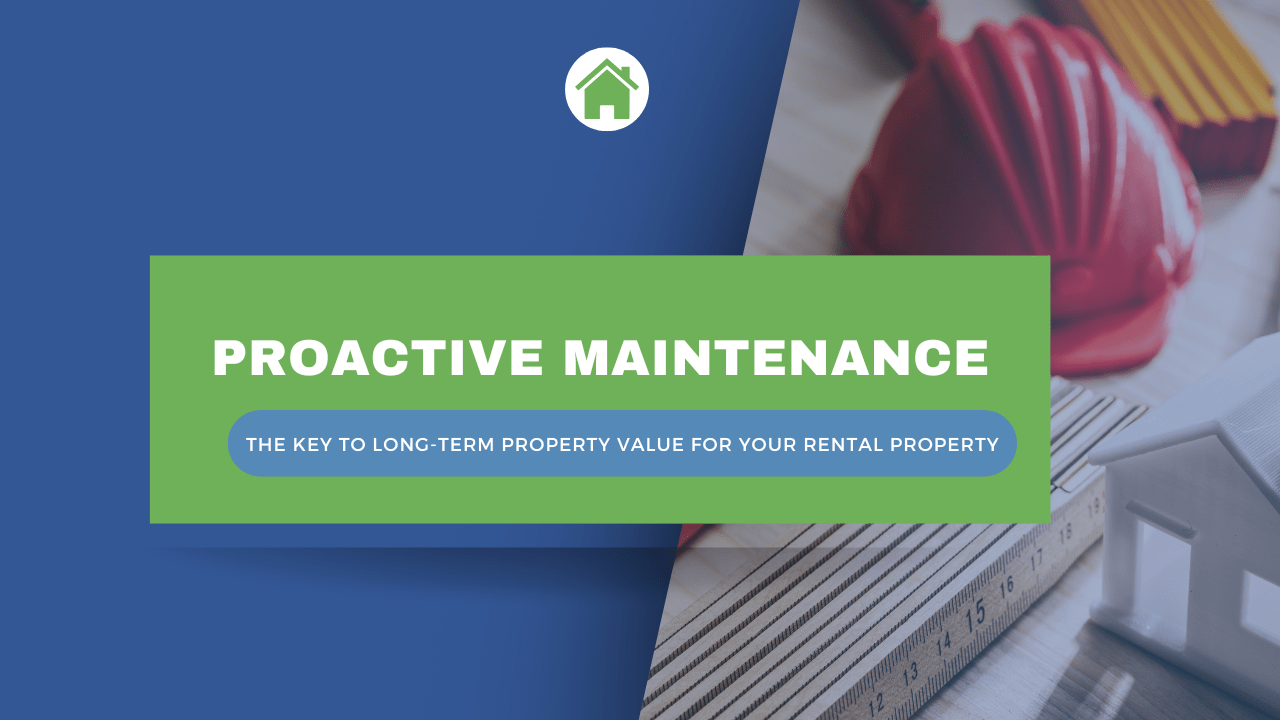
Property value is at the core of your profitability as a rental property owner in Green Bay. You have to make sure its value is increasing, its condition is stable, and that there are plenty of tenants who continuously want to rent it from you.
There are many ways to keep your property value high, and today we’re focusing on one strategy in particular: proactive maintenance. When you stay ahead of the emergency repairs, the deferred maintenance, and the potential problems, you ultimately earn more on your investment.
Let’s unlock the path towards long-term property value for your Green Bay rental by shining the spotlight on proactive maintenance and how to make it work for you.
Why Proactive Maintenance is Crucial for Rental Properties
Before we dive into the tips we have around making proactive maintenance a priority, let's discuss why it’s so important. You probably have a sense of this already, especially if you’ve been renting out properties for a while.
Cost Savings Addressing minor issues before they become major problems can save you significant repair costs. You’re always going to spend more money on the maintenance issues that are left to become bigger and more frustrating. | Tenant Satisfaction Happy tenants are more likely to renew their lease agreements, reducing your turnover rates and vacancy periods. A quick response to maintenance and repair requests makes tenants very happy. |
Property Value Regular maintenance helps to protect not only the condition of your property but its value as well. You want to earn as much as possible on your property now and in the future. To do that, you have to take a proactive and preventative approach to maintenance. | Legal Compliance Habitability standards are important and legally enforced. Staying on top of maintenance helps you comply with local laws and regulations, avoiding potential fines and legal actions. Don’t give your tenants a reason to complain to the city or state. |
Proactive maintenance is good for you, it’s good for your property, and it’s good for the residents who live in your property. We know that the expense and the time that’s required to respond to minor issues is often difficult, especially for self-managing landlords. However, you don’t want to ignore those small items. You don’t want to put them on the back burner for too long. Otherwise, you’ll end up in the middle of a larger and more expensive dilemma.
Elements of a Proactive Maintenance Style
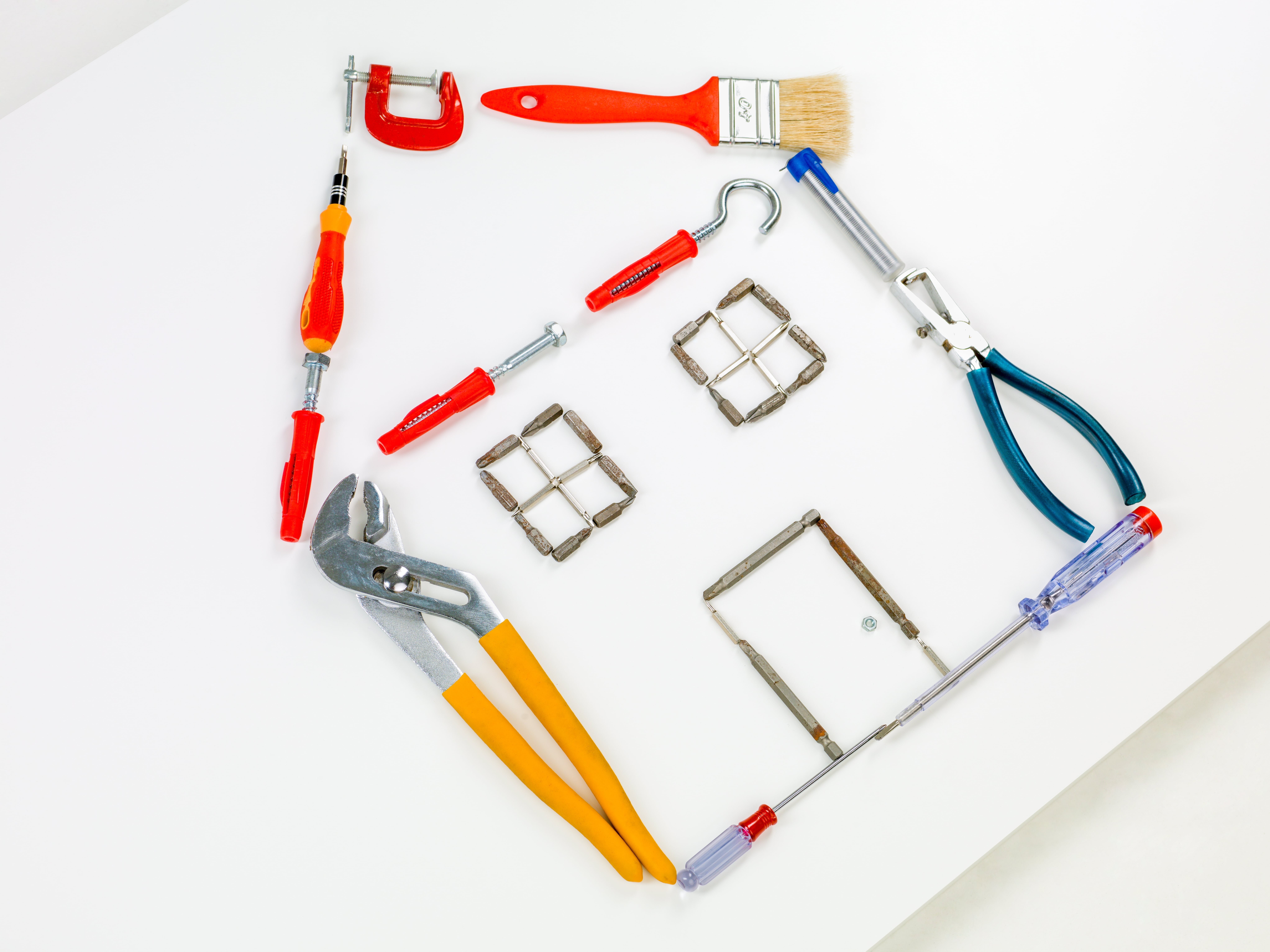
When we talk about proactive maintenance strategies, we’re talking about the following.
Inspecting Your Green Bay Investment
Ongoing inspections will ensure you’re understanding any of the existing and potential problems happening at your property. Three inspections will be especially important as you’re maintaining your investment proactively.
Move-In Inspection The move-in inspection serves several purposes. First, it allows you to ensure that the property is move-in ready, and your tenant can safely and happily move in. Second, it allows you to document the condition of your property before your tenant moves in. This is an important part of protecting your investment and holding your tenants accountable for any damage that’s done to it. Finally, it allows you to take a look at the systems and functions of your property. You can make sure everything is working the way it should. If there’s something that needs to be addressed, you have the opportunity to take care of it right away. | Move-Out Inspection During the move-out inspection, you’ll do the same things you did during the move-in inspection. You’ll take the same photos you did when you were documenting property conditions before the tenants took possession. This inspection is used to decide how you’ll handle the security deposit. If there’s a lot of tenant damage, you’ll want to have it repaired, and you can use the security deposit to pay for those repairs. Another good reason to conduct a thorough move-out inspection is that you have the opportunity to keep your property in good condition. You’ll want to make sure it’s in excellent working order before you begin marketing to new tenants. | Maintenance Inspection At least once during the lease term, you’ll want to get inside your property and look around. Write this into the lease agreement so your tenants understand to expect the walk-through inspection after they’ve already moved in. This is your opportunity to make sure everything is working and in good shape. It gives you an opportunity to ensure there isn’t any excessive wear and tear or deterioration at your property. You can also check in with tenants and see if there’s anything they’ve noticed that might need attention. If you come across even minor repairs and updates that are necessary, get that work done as quickly as possible. It’s the best way to protect the condition and value of your property, and it also shows your tenants that you care about their comfort. |
Conducting regular inspections is the foundation of proactive maintenance.
What to Maintain Proactively
Often, it will seem like parts of your rental property can motor along without any attention at all. You should still take a look at them once in a while. Here are some of the things we recommend around your most expensive and important investment property mechanics:
- HVAC Systems
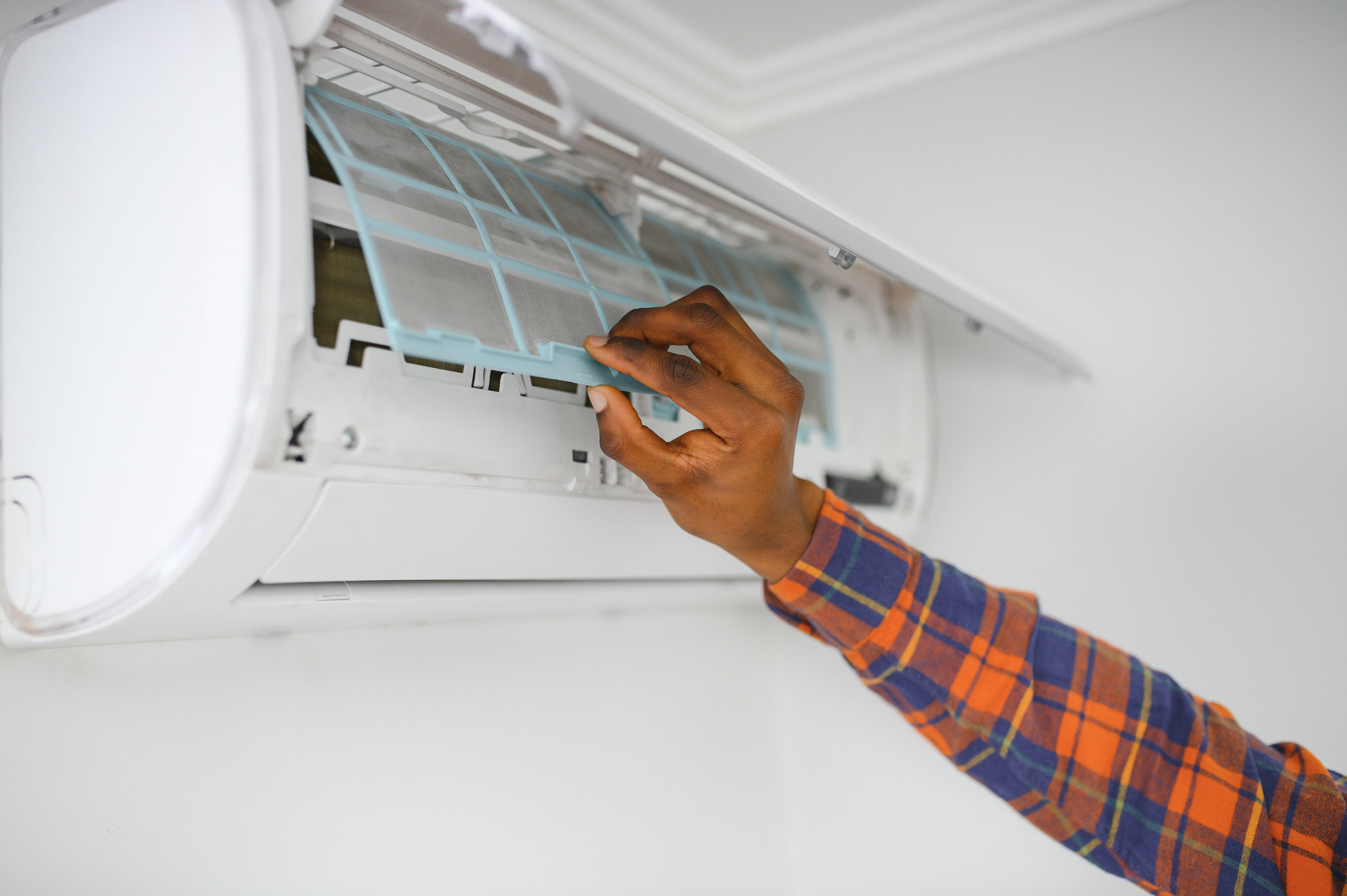 HVAC stands for Heating, Ventilation, and Air Conditioning. This is the system that provides heating and cooling to your residential and commercial buildings. Proper maintenance of this system is necessary to ensure optimal performance and longevity.
HVAC stands for Heating, Ventilation, and Air Conditioning. This is the system that provides heating and cooling to your residential and commercial buildings. Proper maintenance of this system is necessary to ensure optimal performance and longevity.
HVAC maintenance is not just about tenant comfort (although that, too, is a good enough reason to maintain it); it's about protecting your investment. Regular maintenance ensures:
- Efficiency – A well-maintained system runs more efficiently, reducing energy costs.
- Longevity – Regular upkeep can extend the life of your HVAC system.
- Safety – Proper maintenance reduces the risk of system failures that could potentially cause harm.
- Tenant Satisfaction – Happy tenants are more likely to stay longer and take better care of your property when they’re comfortable in the summers and the winters.
Here are some good ways to maintain the HVAC system in your Green Bay rental:
1. Schedule Regular Inspections
Regular inspections by a certified HVAC technician are a great way to ensure you’re proactively maintaining the system. Aim for at least two inspections per year—one before the heating season and another before the cooling season. These inspections help identify potential issues before they become major problems.
2. Replace Air Filters
Dirty air filters can significantly reduce the efficiency of your HVAC system. Make it a habit to replace air filters every 1-3 months, depending on usage and the type of filter. Encourage your tenants to monitor filter conditions as well.
3. Clean Vents and Ducts
Over time, dust and debris can accumulate in vents and ducts, reducing airflow and system efficiency. Schedule professional duct cleaning every 3-5 years and ensure that vents are kept clean and unobstructed.
4. Maintain the Outdoor Unit
The outdoor unit of your HVAC system needs to be free of debris and vegetation. Regularly check the unit and clear away leaves, grass, and other debris. Ensure there’s at least two feet of clearance around the unit to allow for proper airflow.
5. Monitor Thermostat Settings
Ensure that your property’s thermostat is functioning correctly. Programmable thermostats can help maintain optimal temperatures and improve energy efficiency. Encourage your tenants to use energy-saving settings when they're not home.
6. Check Refrigerant Levels
Low refrigerant levels can lead to inefficient cooling and potential system damage. Have a professional check and top off refrigerant levels as needed during regular inspections.
7. Educate Your Tenants
Your tenants play a partnership role in maintaining the HVAC system. Provide them with guidelines on proper usage, such as not blocking vents, regularly replacing air filters, and reporting issues promptly.
8. Keep Detailed Records
Maintain a log of all HVAC maintenance activities, including inspections, repairs, and replacements. This documentation can be invaluable for future reference and when making decisions about system upgrades.
Proactive Plumbing Maintenance
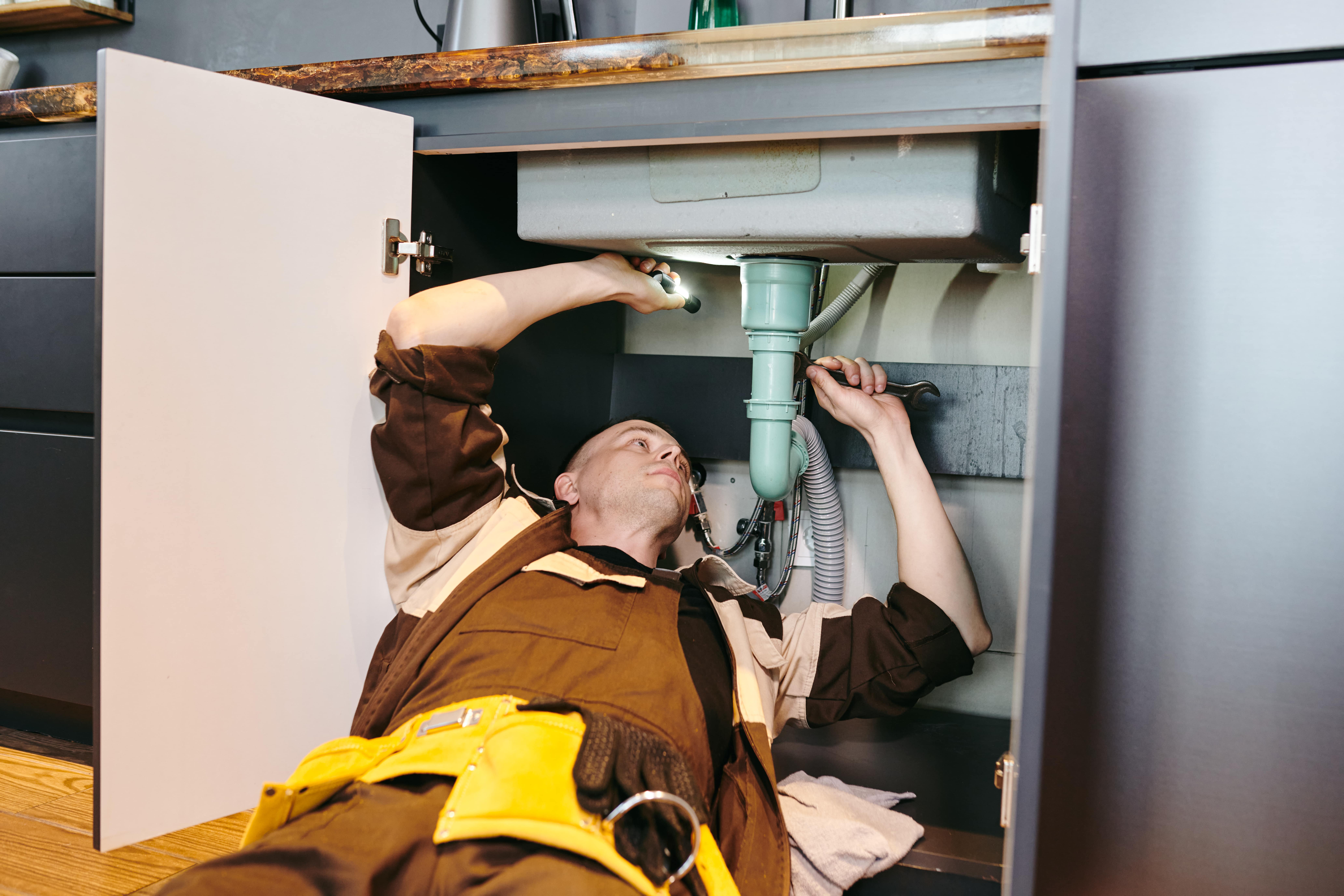
Proactive plumbing care involves regular inspections and maintenance to catch potential issues early. Here are some key reasons why proactive plumbing care is essential:
- Cost Savings: Early detection can prevent minor issues from turning into major, costly repairs.
- Tenant Satisfaction: This benefit comes up again and again, and it’s worth repeating. Tenants appreciate a well-maintained property, which can lead to longer tenancy and fewer vacancies.
- Property Value Preservation: Keeping the plumbing system in good condition helps maintain the overall value of the property.
Here are your easy steps to proactive plumbing care:
1. Conduct Regular Inspections
Regular inspections are the foundation of proactive plumbing care. Schedule inspections at least twice a year to check for leaks, corrosion, and other potential issues. Always work with a professional plumber who can provide a thorough assessment.
2. Include Your Tenants
Your tenants play a significant role in maintaining the plumbing system. Educate them on best practices, such as:
Avoiding Drain Clogs Advise tenants not to pour grease down the drain and to youse drain screens to catch hair and other debris. | Proper Disposal Encourage the property disposal of waste and avoid flushing non-flushable items. This information can be included in your orientation to the property. | Immediate Reporting Make sure your tenants know how to report any plumbing issues immediately, no matter how minor they may seem. |
3. Install Water-Saving Fixtures
Installing water-saving fixtures can help reduce wear and tear on your plumbing system. Consider upgrading to low-flow toilets, which use less water per flush, reducing the strain on your plumbing. You can also look for water-efficient shower heads and faucets. These fixtures can significantly decrease water usage, reducing the risk of pipe damage due to high pressure.
4. Monitor Water Pressure
High water pressure can damage pipes and fixtures over time. Use a water pressure gauge to regularly check the pressure in your property. Ideally, it should be between 40-60 psi. If the pressure is too high, consider installing a pressure regulator.
5. Address Leaks Immediately
Even small leaks can lead to significant water damage and mold growth if left unattended. During your inspections, check for signs of leaks around faucets, toilets, and under sinks. Promptly repair any leaks you find to prevent further damage.
6. Maintain the Water Heater
The water heater is a critical component of your property's plumbing system. Schedule annual maintenance to flush the tank. This will remove sediment buildup that can cause the heater to work less efficiently. You’ll want to have someone check the anode rod, too. This is what prevents corrosion inside the tank. Replace it if it looks old or damaged. Finally, always look for leaks or signs of dripping around the water heater.
7. Winterize Your Property
Green Bay can have some pretty intense winter weather, so it's crucial to winterize the plumbing to prevent frozen pipes. Take steps such as insulating the pipes. This will protect exposed pipes in unheated areas. You also want to drain outdoor faucets. Disconnect hoses and drain water from outdoor faucets. Always keep indoor temperatures above freezing. If your tenants plan to travel, make sure they’ve set the thermostat to a temperature that prevents your pipes from freezing.
Proactive Electrical Maintenance
Check for frayed wires, faulty outlets, and ensure all appliances are in good working condition.
Regular inspections are the foundation of proactive maintenance. Schedule a professional electrician to inspect the electrical system annually. During these inspections, they should:
- Check for outdated wiring.
- Inspect the condition of outlets and switches.
- Test circuit breakers and panels.
- Look for signs of wear and tear.
Make sure you’re upgrading any outdated systems. If your Green Bay rental property is older, it might have outdated electrical systems that are not up to current safety standards. Consider upgrading:
- Wiring. Replace old knob-and-tube or aluminum wiring with modern copper wiring.
- Panels. Upgrade electrical panels to handle today's power demands, especially if tenants use multiple high-power devices.
- Outlets. Install GFCI outlets in kitchens, bathrooms, and other areas where water is present to reduce the risk of electric shock.
Partnering and Communicating with Tenants for Proactive Maintenance
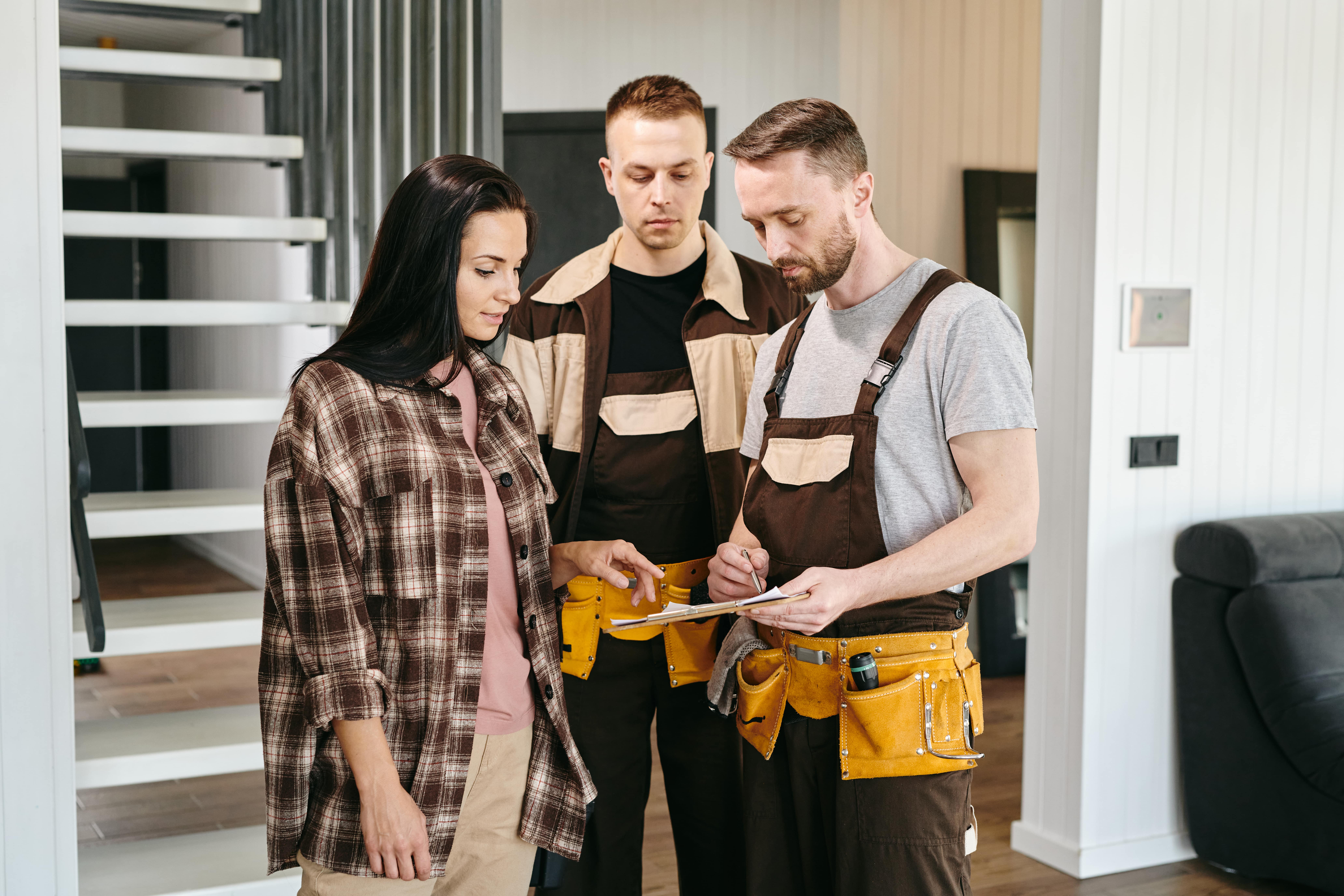
Your tenants are your eyes and ears when you're not around. Encourage open communication and make it easy for them to report maintenance issues.
Create a system for easy maintenance reports. Obviously, you want to know about any emergencies right away, and a phone call is the best course of action as soon as it is safe to make that call. You also want tenants to feel like it’s easy and convenient to report routine maintenance issues. For normal repairs, offer an online or written system. They can send you a message detailing the problem, perhaps, with photos. As Green Bay property managers, we have an entire portal that’s specific to maintenance reporting. It gives tenants the platform they need to make timely repair requests, and it allows us to document and track all of the work that’s done at your property.
It’s also important to provide regular updates. Keep your tenants informed about scheduled maintenance and inspections to build trust and transparency. You may need them to be home for vendors to enter the property, for example. Allow them to coordinate directly with vendors if that makes them feel more involved.
Finally, provide a quick response when your tenants do make a maintenance request. Address those reported issues promptly to prevent small problems from becoming big ones.
Putting Together Your Maintenance Budget
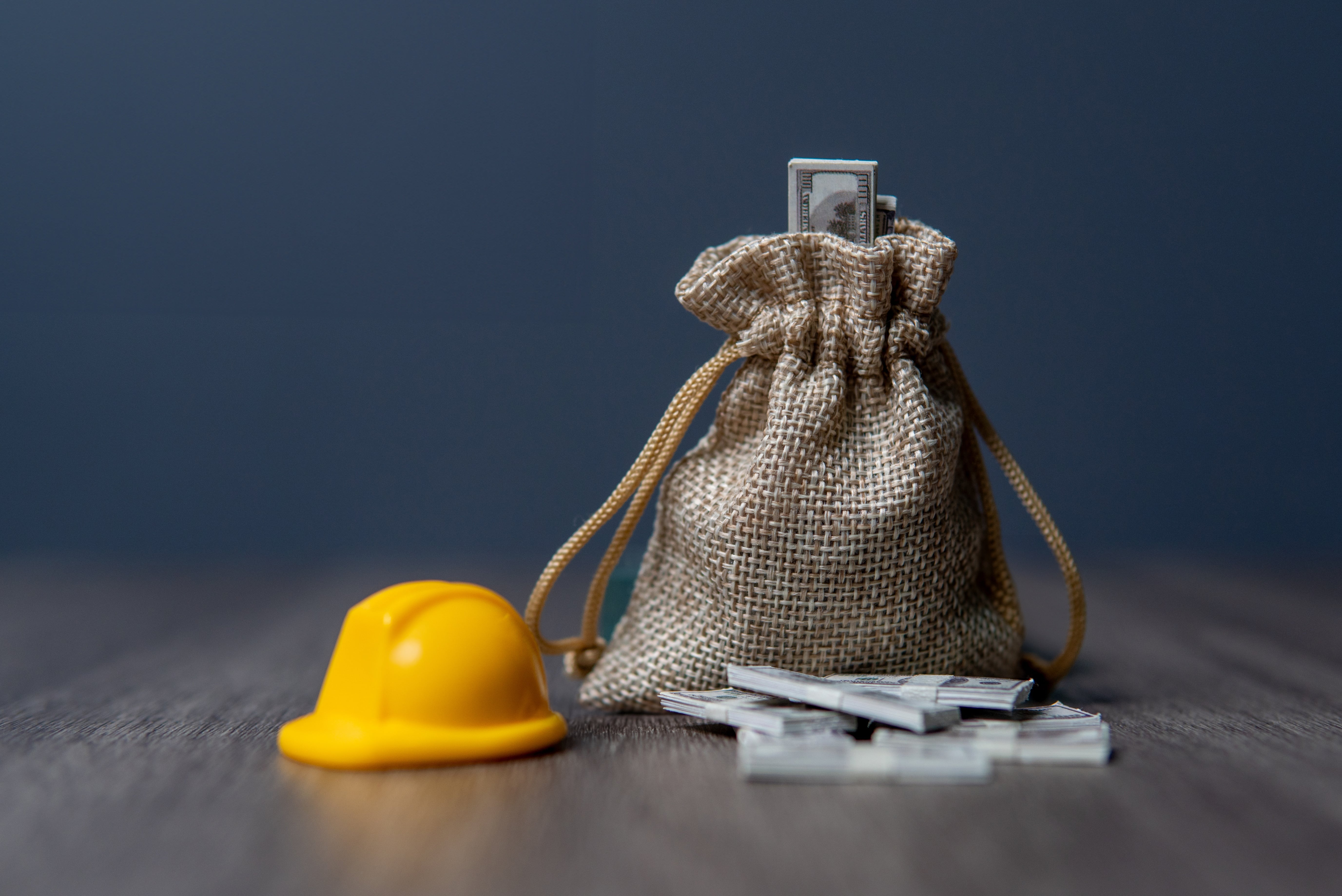
A well-planned maintenance budget ensures you have the funds available when needed, whether we’re talking about a simple appliance replacement or a new roof. When it comes to budgeting, we recommend that you put aside funds in a reserve. Allocate a portion of your rental income for routine and unexpected maintenance. You also want to track expenses carefully. Keep detailed records of all maintenance activities and costs. This will help you plan better for future needs.
Finally, when it comes to budgeting for maintenance over the long term: invest in quality.
Sometimes, spending a bit more on quality materials and services can save you money in the long run by reducing the frequency of repairs.
Partner with Outstanding Vendors
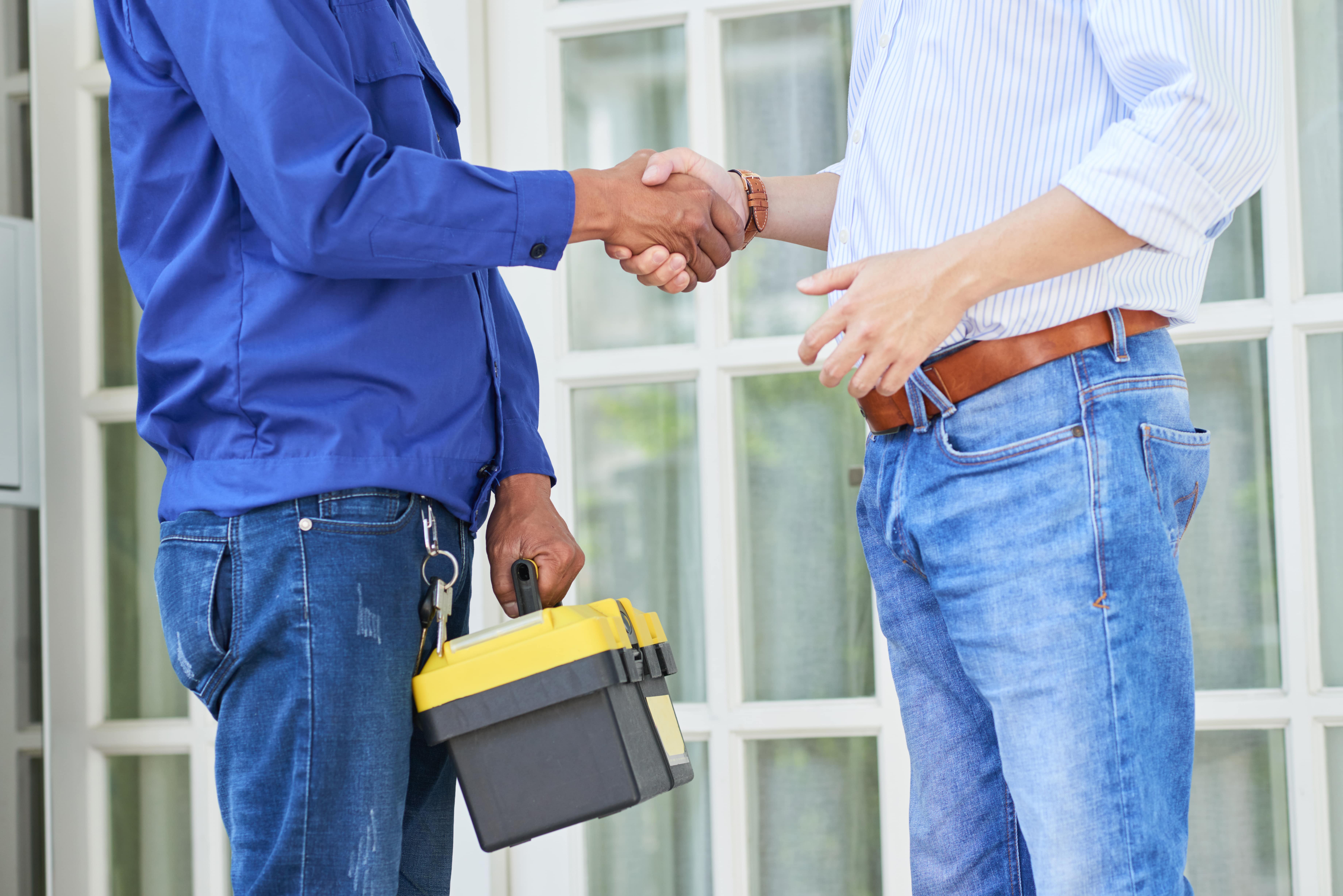
You’ll have a hard time maintaining your property proactively if you don’t have a great team of vendors, contractors, and service providers ready to help you. While there are some good reasons to DIY a project, at your rental property, you want to be working with licensed and insured professionals. Certain tasks will require professional expertise, especially when you want to prioritize quality and reduce liability.
For significant repairs and installations hire licensed contractors who can guarantee their work. Ask for referrals from other property owners who are happy with the professionals they’ve used. Establish relationships with these vendors, too. When they are coming to your property to perform regular maintenance tasks like HVAC servicing, plumbing, and electrical work, it’s easier to get them to prioritize your needs.
Consider professional inspections when it comes to roofing, foundation work, and structural elements. You want to know where you stand. Literally.
These are our best tips for proactive and preventative maintenance for your Green Bay investment property. Let’s talk about your specific needs and how we can help. Contact us at Blue Frog Property Management.




For after-hours emergency maintenance issues, call
1-888-832-0258